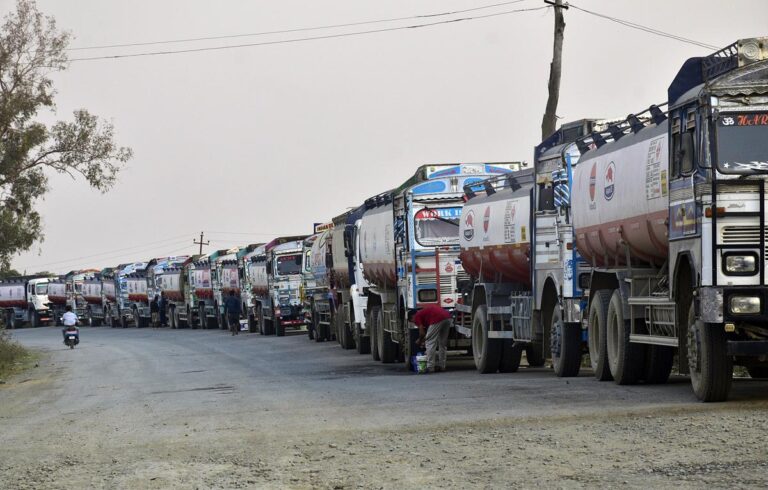Manipur’s Ongoing Battle Against Illegal Poppy Cultivation in Kangpokpi
Summary
In a significant move against illegal drug production, authorities in Manipur have destroyed 25 acres of poppy plantations in the Kangpokpi district. This operation underscores the state’s commitment to eradicating illicit poppy cultivation and combating the associated drug trade.
Introduction
Hey there! Ever wondered about the lengths to which authorities go to combat illegal activities? Well, in Manipur, a state in northeastern India, the fight against illicit poppy cultivation is in full swing. Poppy plants, while beautiful, are the raw material for opium, which is further processed into various narcotics. The cultivation of poppy not only fuels the drug trade but also brings along a slew of socio-economic and environmental issues. In this article, we’ll dive deep into Manipur’s relentless efforts to curb this menace, focusing on the recent destruction of 25 acres of poppy plantations in the Kangpokpi district.
The Significance of Poppy Cultivation
Poppy plants (Papaver somniferum) have been cultivated for centuries for their medicinal properties. However, they are also the primary source of opium, which can be refined into heroin and other narcotics. The illegal cultivation of poppy is a pressing issue worldwide, as it directly contributes to the proliferation of drug abuse and trafficking. In regions like Manipur, the challenges are multifaceted, intertwining with socio-economic factors and security concerns.
Manipur’s Tryst with Poppy Cultivation
Manipur, with its diverse topography and climatic conditions, has unfortunately become a hotspot for illegal poppy cultivation. The remote and hilly terrains of districts like Kangpokpi offer a conducive environment for such activities, making surveillance and law enforcement challenging. Over the years, the state has witnessed a surge in poppy cultivation, leading to increased availability of narcotics and associated social issues.
Recent Crackdown in Kangpokpi
In a determined effort to tackle this issue, a joint team comprising the Manipur Police, Central Reserve Police Force (CRPF), Forest Department officials, and the District Administration carried out a significant operation in the Kangpokpi district. Over a span of three days, they successfully destroyed 25 acres of illegal poppy plantations. This operation targeted specific areas known for extensive poppy cultivation, delivering a strong message against such illicit activities.
Community Involvement: A Game Changer
One of the standout aspects of this operation was the active involvement of local communities. Villagers, upon discovering poppy cultivation in their vicinity, promptly informed the authorities. For instance, residents of Tumnoupokpi village reported the presence of poppy fields on their land. With the support of the district administration and local volunteers, they undertook multiple drives to destroy these plantations, covering approximately 25 acres. Such proactive community participation is crucial, as it not only aids in the physical eradication of illegal crops but also fosters a sense of collective responsibility and vigilance.
Challenges in Eradicating Poppy Cultivation
While the recent operations are commendable, the path to completely eradicating illegal poppy cultivation in Manipur is fraught with challenges:
- Geographical Hurdles: The state’s rugged terrain makes surveillance and enforcement operations difficult.
- Economic Factors: For many local farmers, poppy cultivation is a lucrative source of income compared to traditional crops.
- Security Concerns: There have been instances where enforcement teams faced resistance from armed groups protecting the poppy fields. Such confrontations not only endanger the lives of officials but also complicate the eradication efforts.
Government Initiatives and the Way Forward
Recognizing the gravity of the situation, the Manipur government has intensified its “War on Drugs” campaign. Chief Minister N. Biren Singh has been vocal about the state’s zero-tolerance policy towards drug-related activities. The government is also exploring alternative livelihood options for farmers engaged in poppy cultivation, promoting crops like lemongrass and other horticultural products that offer economic viability without the associated legal and social risks.
Conclusion
The destruction of 25 acres of poppy plantations in Kangpokpi is a testament to Manipur’s unwavering commitment to combating illegal drug production. While challenges remain, the collaborative efforts of law enforcement agencies, government bodies, and local communities offer a beacon of hope. By continuing to work together, Manipur can pave the way for a drug-free future, ensuring the well-being and prosperity of its people.
FAQs
- Why is poppy cultivation illegal in Manipur?Poppy cultivation is illegal because it serves as the raw material for opium production, which is further processed into narcotics like heroin. The proliferation of such drugs leads to increased substance abuse and associated social issues.
- How do authorities identify and locate illegal poppy fields?Authorities use a combination of satellite imagery, aerial surveillance, and ground intelligence gathered from local informants to identify and locate illegal poppy plantations.
- What are the legal consequences for individuals involved in poppy cultivation?Individuals found guilty of cultivating poppy illegally can face severe legal consequences, including hefty fines and imprisonment, under the Narcotic Drugs and Psychotropic Substances (NDPS) Act.
- Are there alternative crops being promoted to replace poppy cultivation?Yes, the government is promoting alternative crops like lemongrass, turmeric, and various horticultural products that offer economic benefits without legal repercussions.
- How can local communities contribute to eradicating illegal poppy cultivation?Local communities can play a pivotal role by remaining vigilant, reporting suspicious activities to authorities, and participating in awareness programs that highlight the adverse effects of drug production and abuse.

